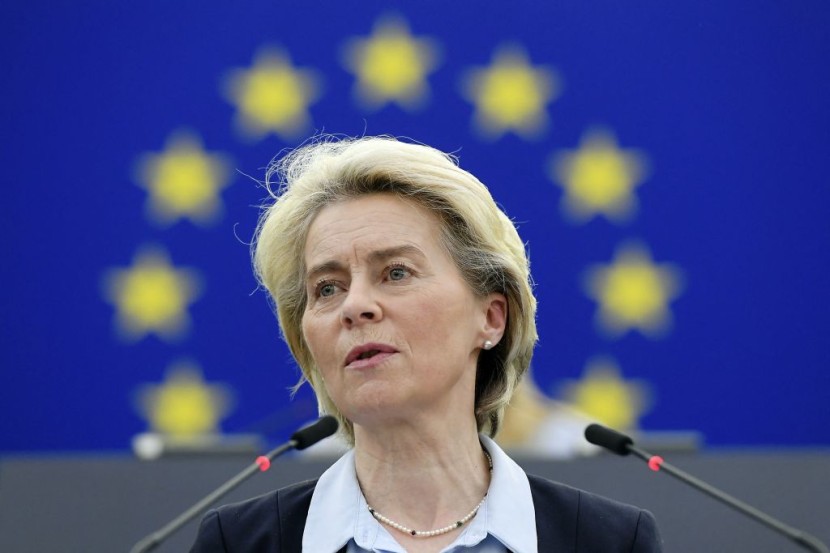
European Commission President Ursula von der Leyen called on the European Union to ban oil imports from Russia in another package of sanctions over Moscow's war against Ukraine.
In her address during the European Parliament in Strasbourg, France, The European Union's top official proposed to the 27 nation-block to phase out imports of crude oil within six months and refined products by the end of the year.
Von der Leyen said that the EU "will make sure" to phase out Russian oil "in an orderly fashion" in a method that allows member nations and partners "to secure alternative supply routes and minimizes the impact on global markets," per AP News.
To take effect, the proposals must be unanimously approved, and they are expected to generate vigorous arguments. Von der Leyen admitted that convincing all 27 member countries to agree on oil sanctions "will not be easy" since some nations are landlocked and heavily reliant on Russia for energy imports.
The EU imports around 25% of its oil from Russia, the majority of which is used to fuel automobiles. According to S&P Global analysts, Russia supplies around 14% of diesel, and a stoppage might drive up already high truck and tractor fuel prices.
Natural Gas Embargo Also Possible
The oil import embargo, if granted, would be the second round of EU penalties aimed at Russia's rich energy sector since the country invaded Ukraine on February 24.
The oil embargo follows a ban on Russian coal announced earlier this month. It also raises the possibility of Russian natural gas limitations.
Read Also : Extreme Heat Wave in India Kills 25, Highlighting Threat of Rising Temperatures Caused by Climate Change
The EU has started discussions on a possible natural gas embargo, but the consensus among member countries on targeting the fuel used to generate electricity and heat homes is more difficult to secure. The region gets about 40% of its natural gas from Russia.
According to an Al Jazeera report, Hungary and Slovakia said they have already said they would not take part in any oil sanctions. Von der Leyen did not elaborate if the two nations will be given an exemption.
Devastating Consequences
The embargo had been a polarizing topic inside the EU, but it gained traction after Germany supported the proposal.
The six-month phase-out period for most EU countries, according to von der Leyen, will allow commodity markets to adapt, as per a report from CNBC.
She noted, "We maximize pressure on Russia, while at the same time minimizing collateral damage to us and our partners around the globe. Because to help Ukraine, our own economy has to remain strong."
The EU's oil embargo will be a "devastating blow" to Russia, according to a strategist.
Natural gas is the EU's most important energy import from Russia, accounting for over 40% of the bloc's total imports. Stopping it all of a sudden would have disastrous economic effects.
The product has already been troubled by the political consequences of Russia's attack on Ukraine. Gazprom, Russia's state-owned energy company, cut off supplies to two EU countries, Poland and Bulgaria, last week after they refused to pay for gas in rubles. Many feared that other EU countries' supplies might be cut off as a result of the move.
Related Article : NATO Expansion Plots Ukraine Strategy To Destabilize Indo-Pacific Region, Chinese Media Alleges
© 2026 HNGN, All rights reserved. Do not reproduce without permission.








